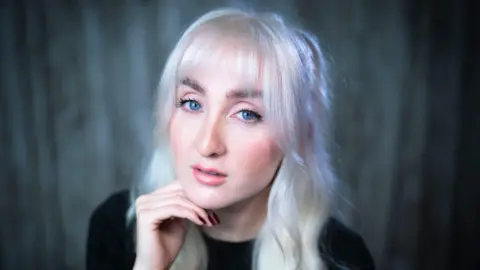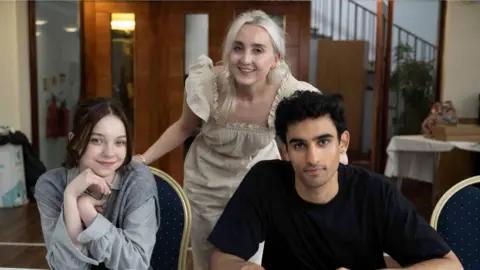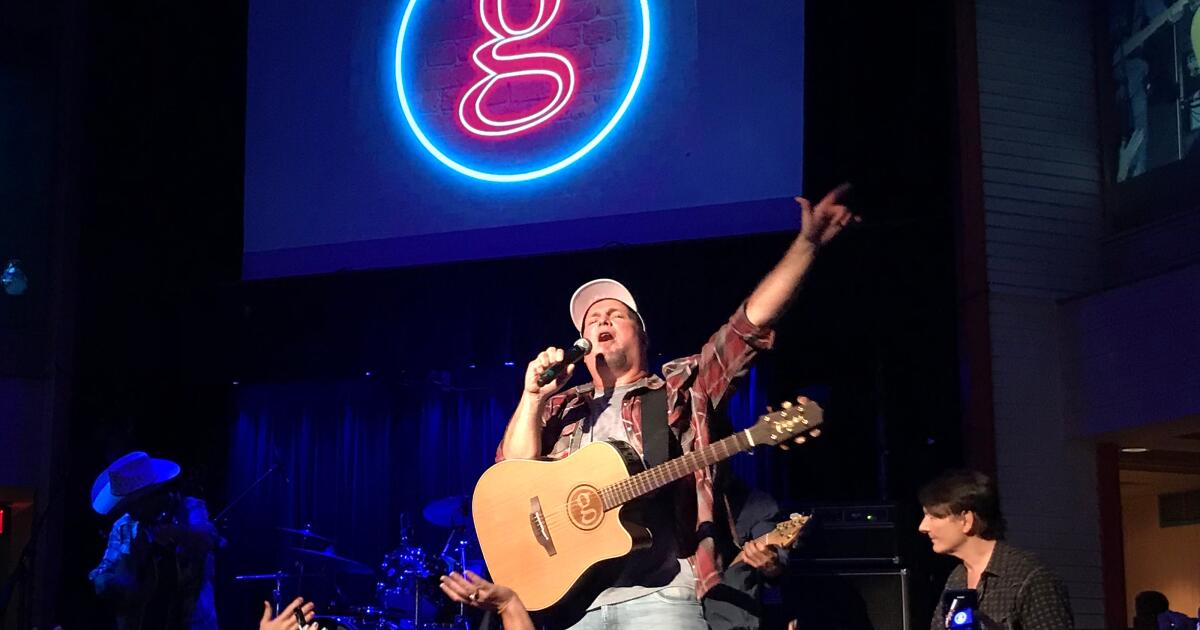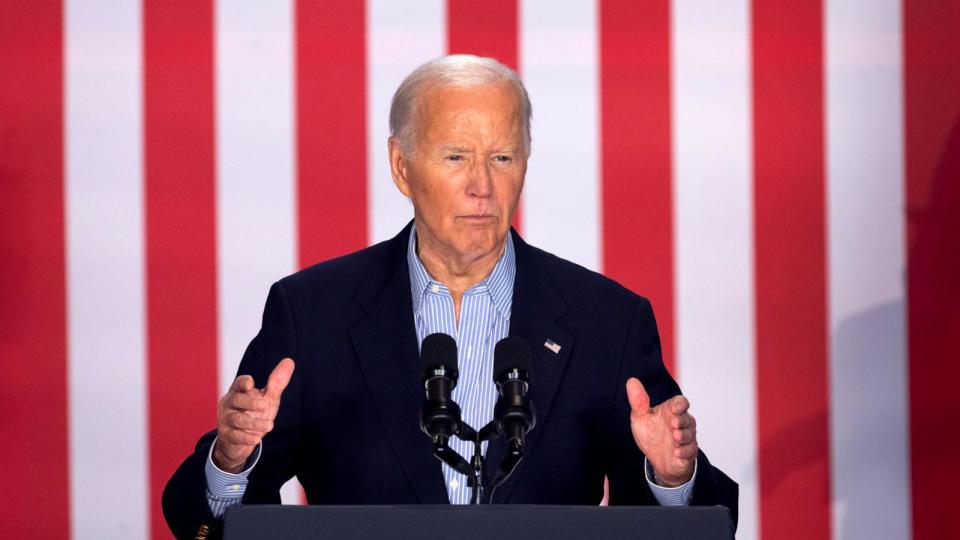World News
Public Funding, Private Education – The New York Times

An overwhelming majority of American students attend public schools. But that number is falling. In part, that’s because in more than half of states, parents can now use public money to educate their kids — at home, online, in private schools. This year, a million students used some kind of private education voucher, more than double the figure from four years earlier, according to new research from EdChoice, a group that supports private-school choice and tracks the sector.
The result is a growing movement of choose-your-own-adventure education. Parents are permitted to find any program that they think fits their beliefs and their kids’ needs. Yet it’s unclear how, or whether, accountability or standards will be enforced outside traditional schools.
What’s driving this change? The pandemic prompted many families to reconsider how their children learn. Republican lawmakers embraced private-school choice as part of a broader push for parental rights. (They also see the issue as a way to appeal to young parents — often Black and Latino — who are critical of how public schools serve their children.) And teachers are reporting intense burnout, with some leaving public schools to open small businesses that can accept these vouchers.
I wrote about these “microschools” in a story The Times published this morning. In today’s newsletter, I’ll explain why parents are opting out of public schools — and what it might mean for how this country educates all of its children.
I recently spent a week in the Atlanta area, talking to parents who pulled their children out of public schools to attend microschools. Some have as few as six students. While most are run by career educators, they don’t have to be: The sector is unregulated, and anyone can open a microschool.
Next year, Georgia will start offering $6,500, through an education savings account, to families who withdraw their children from schools in the bottom 25 percent academically. Some parents I met hope to spend that money on the microschools, home-schooling supplies, therapy or tutoring.
A few were Christian conservatives who want the Bible taught as history. One mother complained about L.G.B.T.Q. public school educators and lamented what she said was an emphasis on gender and race.
But more common were parents who had nothing against public school except that their children failed to thrive there. Nicole Timmons said her daughter, Sienna, 15, was not moving forward academically. Sienna now attends C.H.O.I.C.E. Preparatory Academy, a microschool in Gwinnett County. It serves an almost all-Black student body. On an April afternoon there, I saw about 40 students, ages 8 to 17, working in small groups on Greek and Latin word roots and building simple electromagnetic motors.
The boom in nontraditional education comes with a new political vocabulary. Conservatives who think the government should give parents money for these programs no longer talk much about vouchers. Now they praise money sent directly to families in education savings accounts and buzz about “entrepreneurship” and “permissionless education” — no teachers’ unions or curriculum mandates, and far less standardized testing.
Little accountability
As parents spend state money, the marketplace for private education is growing — with few quality checks. Teachers may not need to be certified or even hold college degrees. Facilities may not be inspected. The schools can teach whatever they like. Some states have approved questionable home-schooling expenses, such as game consoles, trampolines, snack food, televisions and theme park passes. Vouchers from recent decades showed underwhelming academic results.
Private-school choice programs are popular with parents of disabled children. Public school administrators sometimes suggest vouchers to parents when their children are having difficulty, especially with behavior. But accepting a voucher often means enrolling in a program that is not required to follow federal disability law. Private educators often don’t provide on-site therapies.
Advocates for private-school choice embrace the lack of regulation. They say the market will correct itself as parents withdraw their children from mediocre programs. “We’re in the midst of a change on what we mean by accountability,” said Robert Enlow, chief executive of EdChoice, a right-leaning group.
Enlow and others envision a future in which all parents, regardless of income, can spend their children’s per-pupil public school funding on à la carte services — from private school tuition to music lessons to educational software. Even school districts could become players in this marketplace, selling seats in advanced courses to home-schooled students whose parents are not equipped to teach Spanish or physics.
They are pitching this vision as one that can appeal to equity-minded liberals, too. Diana Lopez, whose son attended a microschool this year after struggling in public kindergarten, had generally voted for Georgia Democrats. But their party opposes education savings accounts. “I did have to start considering again who’s representing us,” she told me. “Are they on the same page?”
Democrats and public-education supporters point out that many of the Republican-led states offering vouchers spend comparatively little on their schools anyway — so it’s no wonder parents want out.
For now, the percentage of American students using vouchers is small — about one in every 50 children. But it adds another challenge for traditional public schools. Nationwide, they’ve seen declining enrollment because of low birthrates and the appeal of other options. Now the new laws could turn private-school choice into a rival model, mirroring the rise of charter schools.
For more
THE LATEST NEWS
Israel-Hamas War
More International News
The Tony Awards were last night. Here’s a recap of the big winners:
Best new musical: “The Outsiders,” based on the classic young adult novel.
Best new play: “Stereophonic,” which is about a band making an album.
Best musical revival: Stephen Sondheim’s “Merrily We Roll Along” completed a four-decade journey from flop to hit and won the prize.
More on culture
World News
Holly Jackson: ‘Obviously, I love murder

 Holly Jackson
Holly JacksonBestselling author Holly Jackson shares her secrets for plotting a modern murder mystery – and explains how true crime has influenced her.
For the author of A Good Girl’s Guide to Murder, the process of writing a whodunnit is as meticulous as investigating a crime.
“I am obsessive about it,” she says. “I don’t quite have a ‘murder board’ because it’s not on the wall, but it is on the floor.”
Each scene in one of Holly’s books corresponds to an index card, which is then carefully placed into columns for each act in the story. The author admits this “does rather take over the room”.
While this is great for planning a storyline, Holly says opening her office door a “bit too ferociously” can literally blow her plot out of place.
A Good Girl’s Guide to Murder follows plucky heroine Pip Fitz-Amobi as she investigates a closed murder case. Pip soon finds a co-detective in Ravi Singh, whose brother was implicated in the crime.
Each clue, twist and turn in the story has been thoroughly discussed by Holly’s fans on TikTok; the hashtag for A Good Girl’s Guide to Murder – #agggtm – has more than 58,000 posts.
And the story has now been turned into a BBC drama by lead writer Poppy Cogan, with Holly serving as executive producer.
The Guardian called the series a “very modern Nancy Drew,” with fans on TikTok praising the show, stitching their reactions with clips from the new series.
The BBC spoke to Holly about the process of writing her hit novel. “Obviously, I love murder,” she says, “fictional murder.”
‘I need true crime in my ears’
Holly, 31, from Buckinghamshire, published her debut in 2019. She won a British Book Award the following year and has sold millions of copies around the world.
While her fiction fits into the young adult category, Holly does not shy away from heavier topics, like crime. Her first novel, for example, follows the disappearance and apparent murder of a school girl.
And Holly says true crime content – like the podcast Serial – became a “very useful” tool when writing A Good Girl’s Guide to Murder. The structure of the book feels like a podcast, Holly says, adding: “We have transcripts of dialogue the whole time.”
In the sequel to Holly’s first book – called Good Girl, Bad Blood – Pip even creates a true crime podcast herself.
And Holly says this research tool soon seeped into her real-life. “I can’t really do anything without a true crime podcast,” she says. “If I’m walking the dog or washing the dishes, I need true crime in my ears.”
Allow TikTok content?
In the last ten years, true crime series have won international acclaim: Serial won a Peabody Award in 2015 and In The Dark – a long-form investigative journalism series – became the first podcast to win a George Polk Award in 2019. And, according to The New York Times, Serial has had more 705m downloads.
Even Holly is curious why crime is such a popular source of entertainment.
“Especially with young women,” she wonders, “is that like, an instinct in us that’s trying to protect ourselves?”
Georgia Hardstark is the co-host of My Favorite Murder, a US podcast that looks into historic and modern cases, with one episode covering the Dancing Plague of 1518 and the Paper Bag Killer.
For Georgia, part of the reason she is so interested in true crime is that it helps her feel less “paranoid” and validates her anxieties about life, she explains.
“That is at the forefront of my mind, constantly, you know, ‘What’s around the next corner? Are my doors locked?'”
‘I know who the murderer is’
For Holly, the line between fact and fiction is clearly drawn: unlike true crime cases, she always knows “the ending before I even write the first sentence”.
“I knew from the get-go who the murderer was going to be, this whole setup,” she says. “The slightly more complicated thing is not working out the mystery – it’s working out how Pip is going to solve the mystery.”
In A Good Girl’s Guide to Murder, for example, Pip uses her Extended Project Qualification – an accreditation where a student independently researches a given topic – to interview suspects and keep track of clues for the case.
 BBC/Moonage/Sally Mais
BBC/Moonage/Sally MaisWhile Holly uses true crime as a “jumping off” point for research, she notes the content, often used as a source of entertainment, is “obviously, about real life people’s trauma”.
Jessica Jarlvi – a “Scandi-noir” writer and lecturer on the University of Cambridge’s Crime and Thriller Writing course – says things like true crime podcasts risk sensationalising these events.
“It just puts me off,” she says, “whereas in fiction, you don’t have to worry about that.”
In Georgia’s view, however, ignoring real-life crime – often with women victims – “is to sweep it under the rug”.
‘I don’t have passive readers’
Modern crime readers are “becoming more and more demanding”, Jessica adds.
Holly agrees: “I don’t have those passive readers, I have the really active ones who are looking to solve the mystery.”
On TikTok, fans of A Good Girl’s Guide to Murder share videos with their predictions and suspect lists as they read along with the book.
In one video, a reader guides people on how to annotate the book to keep track, colour co-ordinating sections into “clues” and “conflicts”.
“It makes me have to up my game a bit more,” Holly says.
Wondering how to watch A Good Girl’s Guide to Murder? You can stream the series on BBC iPlayer.
World News
For sale: A piece of California’s country music history


The famed Buck Owens Crystal Palace, where music legends including Willie Nelson, Dwight Yoakam, Garth Brooks and a young Taylor Swift have played, is up for sale, with the foundation that runs the Bakersfield venue planning to list it for $7 million on Monday.
The nightclub, museum and steakhouse was owned by its namesake Buck Owens, the country music trailblazer who bucked the slick commercial melodies of Nashville for a distinctly West Coast twang. Owens opened the Crystal Palace in 1996, watching it become a premier venue for the biggest names in country music, including himself. Buck and the Buckaroos played there every Friday and Saturday night until his death in 2006.
Jim Shaw, a member of the Buckaroos and a director of the Buck Owens Private Foundation, said that after 28 years of running the famed venue, the Owens family plans to step back and find new owners amid a challenging business climate. The foundation said in a statement that “since Buck’s passing in 2006, we’ve tried to maintain the excellence that he expected, even as it became more and more difficult during these challenging times of increasing food and labor costs.”
The venue is not closing and scheduled events will continue as planned, Shaw said.
“It’s business as usual for now,” Shaw said. “Ideally, someone who wants to keep it exactly as it is will come forward.”
Owens’ youngest son, Johnny Owens, wrote on Facebook that the family’s hope “is that a buyer steps forward with a vision for the future and a reverence” for his father and the Bakersfield Sound.
The Crystal Palace, located on Buck Owens Boulevard, is a major tourism staple for Bakersfield. The 18,000-square-foot venue is next to the city’s downtown entrance.
“It’s the No. 1 tourist attraction in Bakersfield,” Shaw said. “There are people stepping forward and we are waiting to see what happens. I am getting a lot of phone calls. I’m anxious to see what happens.”
World News
2nd local radio host says they were given questions ahead of Biden interview

A second local radio host on Saturday told ABC News that he was provided a list of questions in advance of his interview with President Joe Biden this week.
“Yes, I was given some questions for Biden,” Earl Ingram of CivicMedia told ABC News. Ingram, a prominent host of a Wisconsin radio station, interviewed Biden this week in the wake of his debate performance.
Ingram said he was given five questions and ended up asking four of them.
“I didn’t get a chance to ask him all the things I wanted to ask,” he said.
Ingram is the second interviewer who now says they were provided questions by Biden aides to ask the president this week. Earlier today, another local radio host who interviewed Biden this week told CNN she was given questions to ask Biden before the interview.


“We do not condition interviews on acceptance of these questions, and hosts are always free to ask the questions they think will best inform their listeners,” the Biden campaign told ABC News on Saturday.
Ingram told ABC he didn’t see anything necessarily wrong with the practice. “To think that I was gonna get an opportunity to ask any question to the President of the United States, I think, is a bit more than anybody should expect,” he said.
He continued that he was grateful for the opportunity to interview Biden at all.
“Certainly the fact that they gave me this opportunity … meant a lot to me,” Ingram said.
MORE: Wealthy Democratic donors sound alarm over Biden staying in race
On CNN earlier today, Andrea Lawful-Sanders, the host of WURD’s “The Source,” said Biden officials provided her with a list of eight questions ahead of their interview with Biden.
“The questions were sent to me for approval; I approved of them,” she said.
“I got several questions — eight of them,” she continued. “And the four that were chosen were the ones that I approved.”
Responding to Lawful-Sanders, Biden campaign spokesperson Lauren Hitt said in a statement that it’s not “uncommon” for interviewees to share topics they would prefer. She noted that Lawful-Sanders was “free” to ask any questions she saw fit. She also noted that it was the campaign who sent over the questions and not the White House as other reports claim.
Lawful-Sanders did note in her interview with CNN that she ultimately “approved” the questions provided.
“It’s not at all an uncommon practice for interviewees to share topics they would prefer. These questions were relevant to news of the day – the president was asked about this debate performance as well as what he’d delivered for black Americans,” the statement said.
“We do not condition interviews on acceptance of these questions, and hosts are always free to ask the questions they think will best inform their listeners. In addition to these interviews, the President also participated in a press gaggle yesterday as well as an interview with ABC. Americans have had several opportunities to see him unscripted since the debate.”
A source familiar with the Biden booking operation told ABC News that moving forward they will “refrain” from offering suggested questions to interviewers.
“While interview hosts have always been free to ask whatever questions they please, moving forward we will refrain from offering suggested questions.”
2nd local radio host says they were given questions ahead of Biden interview originally appeared on abcnews.go.com
-

 African History5 years ago
African History5 years agoA Closer Look: Afro-Mexicans 🇲🇽
-

 African History5 months ago
African History5 months agoBlack History Facts I had to Learn on My Own pt.6 📜
-

 African History5 years ago
African History5 years agoA Closer Look: Afro-Mexicans 🇲🇽
-

 African History1 year ago
African History1 year agoMajor African Tribes taken away during the Atlantic Slave Trade🌍 #slavetrade #africanamericanhistory
-

 African History1 year ago
African History1 year agoCameroon 🇨🇲 World Cup History (1962-2022) #football #realmadrid #shorts
-

 African History5 months ago
African History5 months agoBlack History Inventors: Mary Kenner 🩸
-

 African History1 year ago
African History1 year agoPROOF AFRICAN AMERICANS AIN'T FROM AFRICA DOCUMENTED EVIDENCE
-

 African History1 year ago
African History1 year agoNo African pre-Columbus DNA? 🤯🤯 #history #mesoamerica #mexico #african























